The Posidonia Problem
Swiss Ocean Tech's Suzy Chisholm explains how increasingly strict EU regulations threaten to restrict anchoring access for large yachts in the Med…
Attention, yacht captains, particularly those navigating vessels over 24 metres in the Mediterranean. The degradation of Posidonia meadows has reached alarming levels, prompting intervention by local, national, and international bodies, as well as marine conservation organisations.
Posidonia, a seagrass unique to the Mediterranean found within 40 metres of the shoreline, plays a crucial ecological role but the estimated regression of these meadows has amounted to 34% in the last 50 years. These meadows reduce wave intensity by 20% on adjacent coastlines and serve as habitats and breeding grounds for over 400 plant and 1000 animal species. They also contribute significantly to the Mediterranean Sea's oxygen supply and act as an effective carbon sink, capturing ten times more CO2 than terrestrial forests.
Yet these invaluable underwater meadows are under threat. Damage to them can take decades, even centuries, to heal. In the past two decades, anchoring boats, particularly larger yachts over 24 metres, have been identified as significant sources of this damage. Regulators are taking note, and unless the superyacht industry can take a more active role in addressing the issue, access to the many iconic anchoring areas may be lost.
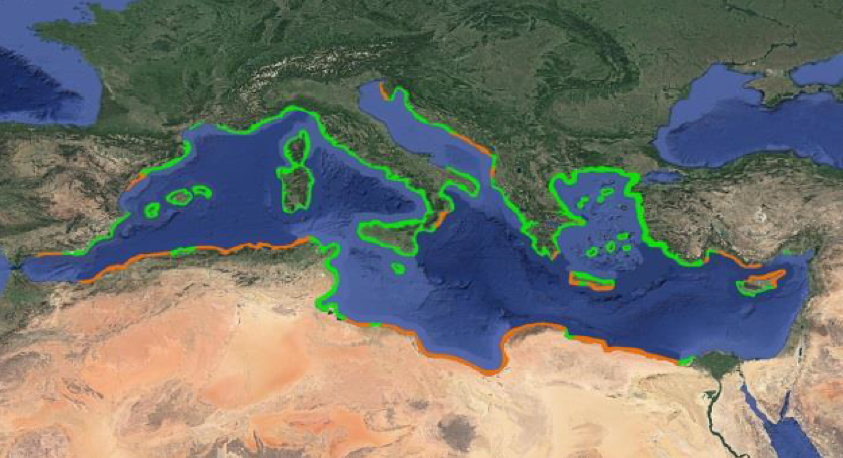 Areas indicating high concentrations of Posidonia meadows
Areas indicating high concentrations of Posidonia meadows
In 2019, the French government, specifically the Préfecture Maritime de Méditerranée, launched a legal framework focusing on Posidonia protection. This initiative has resulted in regular updates of anchoring regulations and rules around the French coastline. Local police, under the new anchorage control policy, are tasked to identify and fine offenders. Penalties for such offences start at €15,000, escalating to potential incarceration for repeat violations.
However, enforcement isn't the sole objective. As Ornella Valls, Adjoint au Chef du Pôle Environnement à la Préfecture Maritime de Méditerranée, clarifies:
“It is not our sole interest to solely exercise punishment or regulate traffic. We welcome any thoughts or ideas on how best to serve the industry’s interests and find a compromise between the various economic needs.”
Serving in the French Navy since 2013, Valls started as a supply officer and Officer of the Watch onboard the French frigate Montcalm, responsible for administration, legal advice and finance. Later she oversaw public relations during the Jeanne d’Arc campaign, which led her to the Pacific Ocean. Now working in the French coast guard’s administration, she is in charge of the protection of the maritime environment and anchoring regulations.
“We focus strongly on taking the yachting specifications and needs into account and seek smart anchoring solutions,” says Valls.
The Préfecture has proposed organised buoy fields and moorings as a practical solution. The placement of these buoys accommodates yachting trends and peak seasons, with maps readily available. Official navigation tools, such as NAV&Co and the DONIA app, provide up-to-date information on Posidonia habitats and current regulations.
Valls emphasises effective anchoring: “It is obvious to us that the superyacht industry is more than aware of how best to anchor. Still, we try to communicate four exemplary anchoring tactics:
• Choose sandy areas, easily identifiable by their clear bottom, using sonar.
• If unsure, anchor at a depth greater than 30m in the French Riviera or 40m in Corsica.
• Reverse at a maximum of 0.5 knots and lift the anchor with the bow of the boat directly above it.
• For short mooring periods, avoid using excessive chain length.”
The resolution of the Posidonia crisis requires collective action, with various countries bordering France expressing interest in implementing similar protection measures. As Valls concludes, “In the end, it comes down to every one of us playing our part to protect and preserve a lifestyle and ecosystem we love.”
The onus now falls on the captains, the true heroes of this narrative, to be mindful of their anchoring practices. Additionally, it is vital to take up the call for input from Valls, and others, and contribute innovative ideas and solutions for consideration. Safe and effective anchoring locations are critical to the industry, but so is the seabed on which it relies. Finding superyacht-specific solutions will be challenging, and the operators have a vital role to play.
NEW: Sign up for SuperyachtNewsweek!
Get the latest weekly news, in-depth reports, intelligence, and strategic insights, delivered directly from The Superyacht Group's editors and market analysts.
Stay at the forefront of the superyacht industry with SuperyachtNewsweek
Click here to become part of The Superyacht Group community, and join us in our mission to make this industry accessible to all, and prosperous for the long-term. We are offering access to the superyacht industry’s most comprehensive and longstanding archive of business-critical information, as well as a comprehensive, real-time superyacht fleet database, for just £10 per month, because we are One Industry with One Mission. Sign up here.
Related news

Offset and match
Offsetting in the Superyacht Industry is a complex issue and one that may still have a part to play on the path to carbon neutrality
Opinion
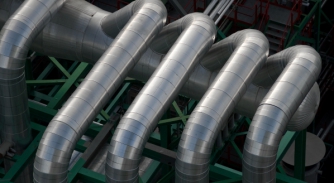
Biofuel plant to open in Spain
Mediterranean capacity of 2nd gen and advanced biofuels to increase with petrochemical giant Repsol to start production at Cartagena facility
Business
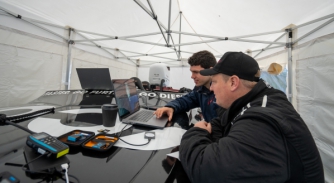
Speed record and HVO parity for COX Marine
British industry innovator, COX Marine, continues to push the performance envelope for its 300hp outboard
Technology
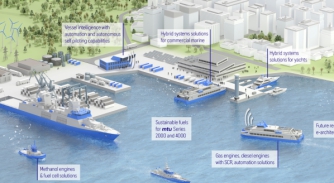
Rolls Royce to present roadmap to net zero
The seminar, at SMM Hamburg 6-9 September, will cover sustainable fuels, alternative propulsion systems and intelligent ship automation
Technology
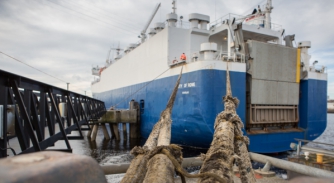
Straight to the source
How can The National Grid and UK commercial ports inform the superyacht industry's decarbonisation strategy?
Technology
Related news
Offset and match
3 years ago
Biofuel plant to open in Spain
3 years ago
Speed record and HVO parity for COX Marine
3 years ago
Rolls Royce to present roadmap to net zero
4 years ago
Straight to the source
4 years ago
NEW: Sign up for
SuperyachtNewsweek!
Get the latest weekly news, in-depth reports, intelligence, and strategic insights, delivered directly from The Superyacht Group's editors and market analysts.
Stay at the forefront of the superyacht industry with SuperyachtNewsweek



